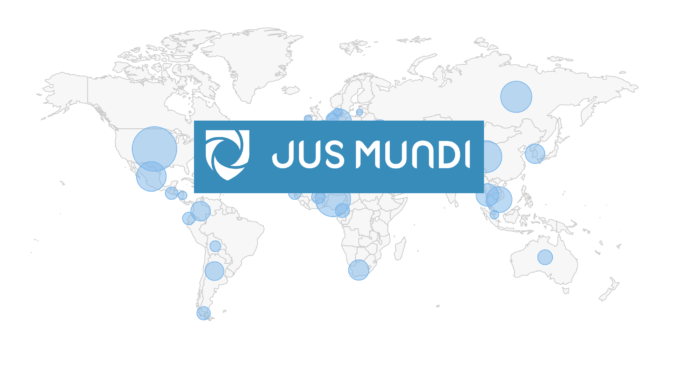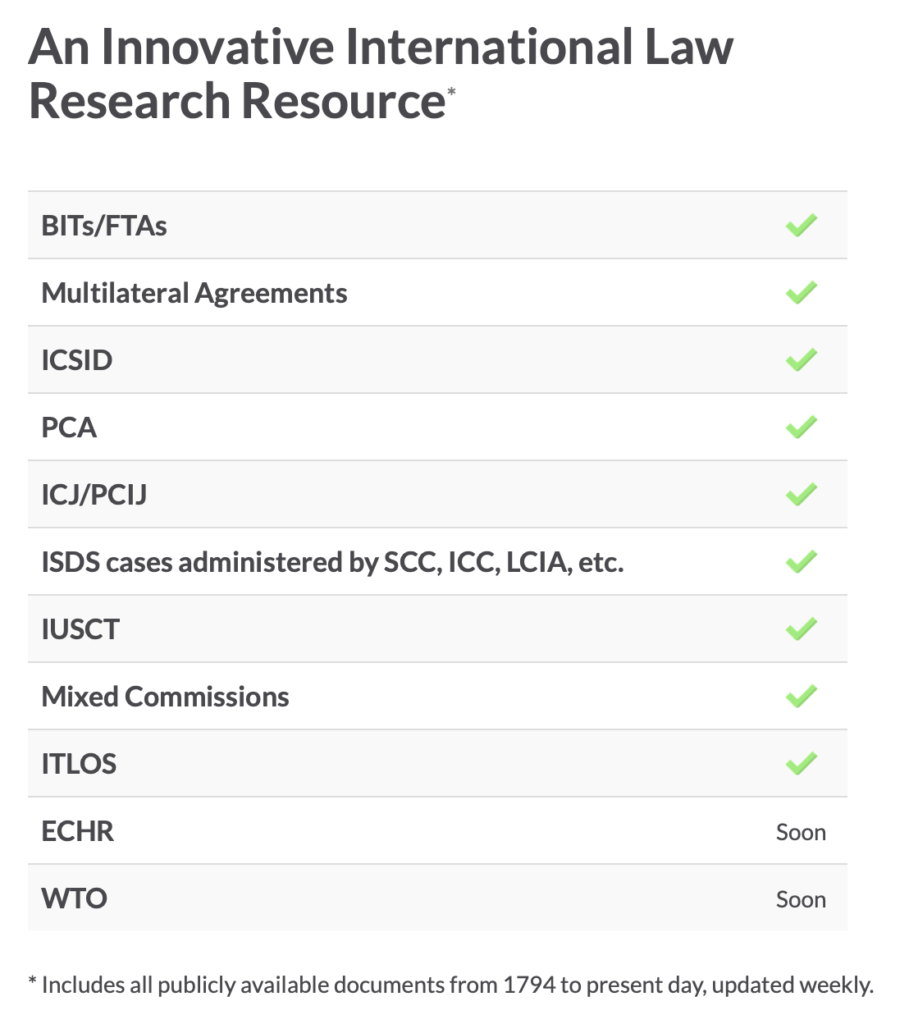
Legal research platforms are not new, but one area where there remains room for improvement is international law and arbitration – step forward Paris-based Jus Mundi, which is building a multi-lingual, highly searchable system for tackling this area.
Artificial Lawyer spoke to Jean-Rémi de Maistre, co-founder and CEO of Jus Mundi, about the platform. In a nutshell, de Maistre says that it is ‘using mathematics and machine learning to enable lawyers around the world to conduct comprehensive and quick international legal research’.
It seeks to provide multi-lingual access to everything from case law, to the international treaties the cases are based upon, and arbitral awards that have been made public – across multiple languages – 70 in fact. And, initially the interface will work in English and French. I.e. you get a bi-lingual way into the data set, and that data set is itself made up of documents in many different languages.
The platform has many of the attributes you’ve seen in other research systems, all designed to help you to find what is relevant and connected to the issues you’re looking at.

de Maistre had been working as an international lawyer for some time and had become frustrated by the incompleteness of documents for the complex, cross-border international law disputes that have become a distinct practice area for a growing number of firms and barristers chambers.
‘Lawyers in my field were just using Google to do their research. There was a lot of noise, and lots of poor quality PDFs online,’ he explains. ‘So you could not do proper full text searches.’
And perhaps that is proof itself that there was a gap in the market, i.e. if experts in a certain legal area are spending hours wading through Google for relevant search responses, rather than heading to the big brand case law companies, then clearly something needed to be done.
Now, with Jus Mundi you should be able to more easily find what you need from a growing corpus of around 20,000 documents available, of which 15,000 are the international cases and 5,000 are treaties between the world’s 195 countries and trade bodies.
Tagging of key terms will bring paragraphs of relevant text across all languages in the corpus. Those that are in languages the lawyer doesn’t speak will have to do some on-line translation, or perhaps refer the text to a colleague who can read Russian, or Mandarin for example. I.e. it’s not a ‘Babel fish’ style universal language translation system yet, but it’s a step in the right direction.

They released V1 at the end of last year and have worked with DLA Piper and Freshfields among other major firms. They’re also growing the corpus of documents weekly and have plans to add legal data on other areas of international law, including Human Rights.
They are also developing a way to show the decisions of arbitrators so ‘you can see what they said before’.
(Though they probably will not be publishing any statistical data on what French judges have been saying….! See story.)
Right now they have around 10 people, with a mix of lawyers and data scientists working on the project.
They also have multiple collaborators, including academics, lawyers, arbitrators, judges, and students from across the world who help with:
- Collecting awards and judgments
- Teaching their ML engine legal concepts relevant to international law and arbitration
- Authoring notes and digests on relevant legal concepts.
All in all a practical tool that will be of great use to those firms and corporates – as well as government departments – engaged with cross-border legal wrangles and negotiations. In fact, in this time of trade wars and traditional trading blocs becoming more complicated this may be arriving just at the right time.
It’s also further proof that there are some great legal tech companies coming out of France. Regardless of what some judges may think of its outputs, La Legal Tech is doing very well.
1 Trackback / Pingback
Comments are closed.